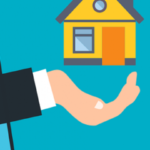My first house hacking experience was in my primary residence. Though I became a landlord technically, I did not consider myself to be a real-estate investor.
I sold the property as soon as I had the chance. If I had only known about real estate investment strategies, I never would have let this property go.
In 2011, my spouse shared her desire to rent out a downtown condo. I told her that “I did not want to fix toilets.”
My journey has led me to owning multiple properties in the local real estate market. Two things remind me of my journey
I love real estate investing
My wife always has the right answer!
Table of Contents
What is House Hacking?
House Hacking: Benefits
Live Rent Free
Financing
Low Down Payment
Passive Income
How to Start house hacking?
Step 1: Earn Creditworthiness
Step 2: Establish a Relationship with a Local bank
Step 3: Study Your Local Real Estate Market
Step 4: Create an effective process to find leads
Step 5: Make a bid
How to grow your real estate portfolio
BRRRR Method
1031 Exchange
Common House Hacking Errors
Treating Investment as a Hobby
Non-compliance with the Law
Do Not Screen Tenants
Budgeting for Repairs
Final Thoughts
What is House Hacking?
When an owner rents out parts of their home while living in the house, they are called house hacking. The tenants pay the mortgage while the owner is living rent-free.
A person could, for example, buy a multi-family home (such as a triplex), and live in one unit while renting out the others. A person can also rent out rooms in a single family home and live in one room.
My simple strategy for house hacking was to own a single family house and have roommates pay the rent.
I did not do this in order to build wealth. Instead, I invited friends to live with us, primarily out of social reasons.
I became a landlord in theory. My roommates helped pay the mortgage, even though I owned the house.
House Hacking: Benefits
Are you looking for your first property to invest in but are unsure where to start? The benefits of house hacking are numerous, particularly for novice investors.
Rent for Free
Rent-free living is the first and biggest benefit of house hacking! The principal, the interest, and possibly mortgage insurance are all included in a mortgage payment. The tenants are responsible for repaying the debt service.
Financing
Lenders will offer lower rates of interest to those who intend to live in their properties, compared to non-resident investors. Lenders give lower interest rates to those who live on their properties because they take better care of the place they call home. They are therefore less risky.
The interest rate on my rental property is approximately three to six percentage higher than the interest rate on my primary residence.
Low Down Payment
Owner-occupied properties do not require the same down payment as non-owner-occupied borrowers.
The Federal Housing Administration (FHA), for example, insures mortgages and requires only a downpayment of less than 5 percent of the purchase cost.
For non-owner occupied property, a deposit of 20 to 25% is required. Owner-occupied borrowers pay a significantly smaller down payment than non-owner-occupied borrowers.
You won’t be bored with the math. This low down payment is a great deal for house hacking!
Passive Income
Net operating income (NOI) is a monthly cash flow that can be generated by successful house hacking. The net operating income can be calculated by subtracting monthly operating costs from gross rental income.
Net Operating Income = Gross Rent Income – Operating Expenses
Here is a list to help you determine your monthly operating costs:
Mortgage Payment
Property Taxes
Property Insurance
Utilities
HOA fees
Property Management Company
How to Start house hacking?
Step 1: Earn Creditworthiness
Leveraging other people’s cash is the most powerful thing you can do in real estate. For a lender approve your real estate financing you must be as creditworthy and reliable as possible.
Creditworthiness can be achieved by having a good credit score and a stable source of income, as well as reducing the debt to income ratio.
Credit Karma offers you the opportunity to monitor your credit score and receive recommendations. Logging in is completely free and does not affect your credit score. Register for free.
Step 2: Establish a Relationship with a Local bank
I always advise new investors to establish a relationship with their local credit union or bank. Local bankers can have more power over your loan than bankers at “big-name” banks.
Tell your banker exactly what you want to achieve with house hacking. Your banker will be able to suggest loan options that can help you achieve your goals. These include FHA loans, 203k loans, and HomeStyle Renovation Loans.
My banker has a lot of investors and I am fortunate to have a good relationship with her.
Her motto is “I don’t buy houses.” I invest in people.” Our relationship has reached a stage where she has increased our credit limit, allowing us more property to buy.
Step 3: Study Your Local Real Estate Market
Research the local real estate market to find areas that offer good opportunities for house hacking: look at property values, rental income and the type of tenants you have in your area.
Before I made my initial offer on a property for investment, I had analyzed multiple properties. I calculated different numbers such as cash-on-cash and return on investment.
When I get a lead I can tell right away if it is a good deal or not.
Step 4: Create an effective process to find leads
Real estate investing is difficult because finding deals can be challenging. You need to develop a system that will lead to deals. For example, find absentee property owners.
Here are some ways to generate leads.
Drive for Dollars
Direct mail campaign
Signs
Online marketing
Reviewing tax records
Working with an agent is a good idea.
Step 5: Make a bid
Other investors are always looking for good deals. Once you’ve done your research, it’s now time to make an offer.
Don’t let it discourage you if your offer is not accepted. You’ll realize that you cannot win all the properties you offer. You only need one.
In one year, I analyzed more than 50 properties, visited twelve of them and made five offers. One of my offers was accepted and it was an amazing deal!
Consider a subject-to-real estate offer if you are looking for an alternative to traditional financing.
How to grow your real estate portfolio
Renting out property is a good way to earn passive income.
If you want to become financially independent or replace your income, you will need to increase your real estate portfolio.
BRRRR Method
BRRRR is Buy, Rehab, Rental, Refinance, Repeat. The BRRRR method is a real-estate strategy that allows investors recouping their initial investment to put towards another investment.
This is a strategy I use often. I bought three properties in less than two years. It can be difficult to understand the method at first. It’s much easier to understand if you use an example.
BRRRR Example
Joe BUYS a property worth $100,000. He pays $5,000 down, and a bank loans him $95,000. To keep things simple, I will ignore closing costs.
After he has made improvements, he spends $10,000 in REHAB costs. He then rents his property out for $1300. His total initial investment is therefore $15,000.
After a few weeks, Joe asks a bank for a cash-out refinance. A bank provides a loan of 75% the appraised value. The property appraises at $150,000. The principal balance is therefore $112,500 ($150,000 multiplied by 75%).
The new loan, $112,500, replaces the previous loan, $95,000. Joe gets his $5,000 down payment and all the costs associated with the renovation.
Refinanced Amount = First Loan Balance + Down Payment + Renovation Costs = $112,500-$95,000- $5,000-$10,000 = $2,500
The $112,5000 loan is paid off by the rental income of $1300. Joe recovered his $15,000 investment, plus an extra $2,500 through the cash-out refinance.
Joe can REPEAT this process and use $17,500 to put down on a new property.
This strategy involves buying a property at a low value and forcing it to appreciate through renovations.
1031 Exchange
The Internal Revenue Service’s 1031 exchange allows investors to delay paying capital gains taxes on the sale of their property.
According to 1031 rules, investors must exchange their existing property for one with a value that is greater or equal to it.
You must own your property for a minimum of two years to be eligible for this tax code.
Nathan, for example, purchased a duplex house hacking property for $150,000. He made improvements over time. After two years, the property’s value increased to $600,000. The net proceeds from the sale were $500,000.
Original Purchase Price: $150,000
Fair Market Value: 600k
Net Proceeds: $500k
Nathan is entitled to the net proceeds. The government will tax him heavily.
He can also use it to invest in a larger property such as an apartment complex with 24 units or multiple short-term rentals!
Nathan’s ability to generate a higher monthly cash flow and reduce his maintenance expenses, as well as improve the quality of his tenants, has increased.
He has gone from being a novice in real estate living without rent to an experienced real estate mogul.
Earn money in real estate crowdfunding:
Fundrise – Multi-family and Commercial Real Estate. Invest as little as $500.
DiversyFund: Multi-family and commercial property. Invest as little as $500. No management fees.
Groundfloor – Single-family homes with short-term loan
Common House Hacking Errors
Treating Investment as a Hobby
Real estate investing should be treated like a business. New investors often make the mistake of treating real estate investing as a hobby. They do not give their investments the attention they need, which can result in financial ruin.
Non-compliance with the Law
If you violate any local laws regarding rental, for example by not adhering to zoning regulations, the city may shut down your business.
I went to a property that was for sale, because the owner had been trying to hack a house creatively. He created an illegal duplex out of a single family house and his work did not meet code.
The city then shut him down. He was forced to sell and cut his losses.
Do Not Screen Tenants
It is important to screen your tenants.
Your property may be a desperate need to rent to pay your mortgage. Unfavorable renters can cause damage to your property. These damages can cost you thousands of dollars to repair, or force your property to become vacant.
They were interested in renting one of my houses. They had two large dogs, which I do not accept under my policy. Although it would have been nice to accept their application, I had to weigh up the risks and decide to move on.
Budgeting for Repairs
A common mistake made by new investors is to not include potential repairs and vacancies in their analysis. They don’t also have enough cash to cover these expenses.
I try to keep at least three month’s worth of rental income in cash for each property.
Final Thoughts
Unknowingly, I made my first house hack. If I had planned ahead when I bought my first home, I would have done a 1031 swap and increased my real estate portfolio.
I bought that house for 135,000 dollars and rented it for 1,300 dollars before selling it. Zillow estimates that the rental income is $1,600 and that its market value exceeds $200,000.
These house hacking techniques are an excellent introduction for anyone who is interested in real estate. You should always do your research before making any investments.
This article was originally published on Wealth of Geeks and is republished here with permission.









